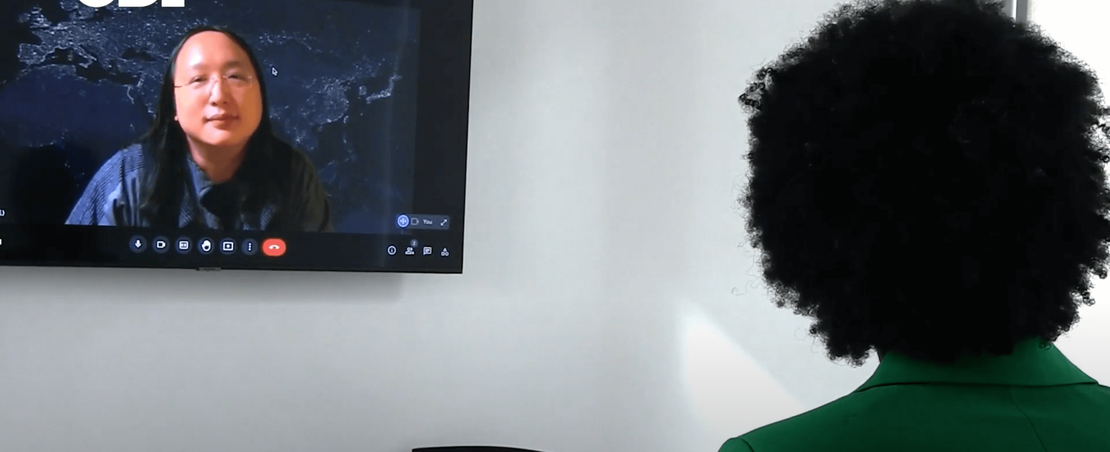
Read and comment on the transcript
“My philosophy is really to empower people closest to the pain”
Data, and data-enabled technologies – including those often grouped under the umbrella of artificial intelligence or ‘AI’ – are changing the world. The World Economic Forum has compared the shifts we’re currently experiencing to economic upheavals of the past, saying that we’re living through a ‘Fourth Industrial Revolution’.
With economic upheavals come social consequences, and demands for governments to step in. But democratic governments, unlike private companies, don’t tend to ‘move fast and break things’ – they’re bound by obligations stemming from written constitutions and the unwritten social contract with the citizens who elect them. It’s increasingly clear, though, that this social contract is shifting, and that policymaking might need to change in response.
The ODI’s Public Policy team has been exploring these questions over the past 18 months as part of our Experimentalism and the Fourth Industrial Revolution project. Across nine roundtables carried out with 18 international partners, we’ve considered how policy-makers can respond to the challenges associated with data and AI by working in more experimental, adaptive ways.
No-one exemplifies this new brand of policymaking more than Audrey Tang, Taiwan’s Digital Minister. From her early work using digital technology to crowdsource policy through the vTaiwan project, to setting up a brand new government agency (the Ministry of Digital Affairs or moda) which refuses to give what she calls ‘top-down, coercive orders’, Audrey has consistently taken data and digital policy down new paths, leaving trails for others to follow.
We launched our final report of the Experimentalism project at ODI Summit 2022: Data Decade as part of a conversation between Audrey and the ODI’s Head of Public Policy, Dr Mahlet ‘Milly’ Zimeta. Today we’re publishing the full recording of their discussion, along with an annotated transcript.
Read on for some highlights, and join the conversation by commenting on the transcript.
Experimenting for whom?
Experimentation, as a concept, can mean different things to different people, and in different contexts. While some groups of people may associate the term with progress and innovation, it can also have negative connotations for oppressed populations who throughout history have been subjected to experimentation and exploitation by others. That is the case, for example, for many people from minoritised and marginalised communities in Europe and North America, and people from post-colonial territories in the Global South.
Throughout our project, we’ve tried to remain mindful of the ways in which experimental approaches to governance and policymaking might actually reinforce existing biases or power structures. Countering these biases and power asymmetries has also been a key theme of Audrey’s career: deploying innovative new approaches such as mass consultation and open code, but in ways that are driven by and accountable to diverse communities including Taiwan’s Indigenous groups.
From the margins to the centre
Structurally disadvantaged communities aren’t simply victims of exploitation: they hold unique insights that can help to identify tensions and contradictions in the systems in which they operate. In our project – and particularly the Octavia Butler and Ursula Le Guin workstreams – we’ve sought to centre these communities and highlight the ways in which they can develop original thinking beyond currently hegemonic social and conceptual constraints. This idea was also highlighted by Indigenous thought leaders in our ODI Summit 2022 panel on ‘Data in Indigenous communities', which will soon be made available to watch on-demand.
This resonated with a core tenet of Audrey’s philosophy: to ‘empower people closest to the pain’. This means not only trying to limit the harms caused by data and digital tech, but to allow those most exposed to harms – for example frontline workers during the Covid-19 pandemic, or groups at risk of information manipulation and conspiracy theories – take the lead in directing the future development of those technologies. This is a version of what we might call ‘bottom-up innovation’, allowing disadvantaged communities to take hold of their own cultural production and engage in a democratic conversation as an equal voice.
Rejecting technological solutionism
It can be tempting, as policy-makers working on data and digital technologies, to assume that the phenomena we are attempting to manage are wholly without precedent, and that new responses are warranted as a result. At the ODI we think it is important to also recognise that existing approaches and evidence-bases can often be repurposed for the twenty-first century, whether that’s the use of centuries-old legal structures such as co-operatives to steward data or the use of tax incentives to support investment in data infrastructure. We also believe that technological fixes might not be a substitute for critical activities such as building institutions and communities.
Audrey takes a similar approach, emphasising not technological solutions themselves but the potential to create shared social value with any given intervention. Building consensus and trust around these aims can provide the basis to then evaluate the appropriate technological means for achieving them.
Join the conversation
Interested in hearing more from a discussion that ranged from AI, blockchain and the future of the internet to ‘conservative anarchism’, Star Trek and Leonard Cohen? You can watch the full conversation in the video above, or read and annotate the transcript here. We want to hear from you – the transcript is open for comment, so share your thoughts and take part in the conversation.
If you’re interested in reading more about the ideas discussed above, take a look at our final report – published as an open document for reader contributions. Let us know what you think by adding your thoughts, reactions and commentary.